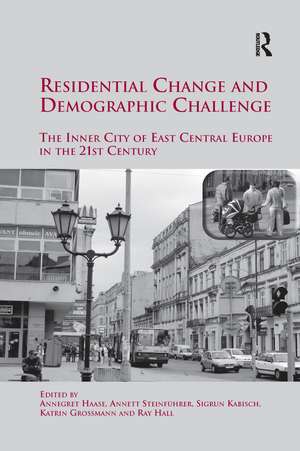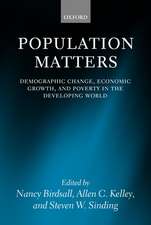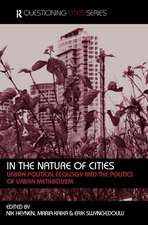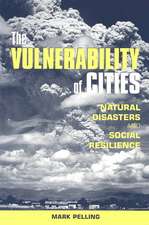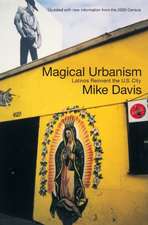Residential Change and Demographic Challenge: The Inner City of East Central Europe in the 21st Century
Autor Annett Steinführer Editat de Annegret Haase Autor Sigrun Kabisch, Katrin Grossmannen Limba Engleză Paperback – 11 noi 2016
| Toate formatele și edițiile | Preț | Express |
|---|---|---|
| Paperback (1) | 469.34 lei 6-8 săpt. | |
| Taylor & Francis – 11 noi 2016 | 469.34 lei 6-8 săpt. | |
| Hardback (1) | 1054.71 lei 6-8 săpt. | |
| Taylor & Francis – 28 iun 2011 | 1054.71 lei 6-8 săpt. |
Preț: 469.34 lei
Nou
Puncte Express: 704
Preț estimativ în valută:
89.82€ • 93.43$ • 74.15£
89.82€ • 93.43$ • 74.15£
Carte tipărită la comandă
Livrare economică 12-26 aprilie
Preluare comenzi: 021 569.72.76
Specificații
ISBN-13: 9781138254435
ISBN-10: 1138254436
Pagini: 376
Dimensiuni: 156 x 234 mm
Greutate: 0.45 kg
Ediția:1
Editura: Taylor & Francis
Colecția Routledge
Locul publicării:Oxford, United Kingdom
ISBN-10: 1138254436
Pagini: 376
Dimensiuni: 156 x 234 mm
Greutate: 0.45 kg
Ediția:1
Editura: Taylor & Francis
Colecția Routledge
Locul publicării:Oxford, United Kingdom
Notă biografică
Annegret Haase is a lecturer in Urban and Environmental Sociology at the Helmholtz Centre for Environmental Research, Leipzig, Germany.
Recenzii
'Rarely have questions of demographic change and housing transformation been brought together in such a convincing and thorough manner. This will become essential reading for scholars wishing to come to grips with the complexities of urban restructuring in the post socialist world, not the least due to the depth of the volume's evidence base, and the richness of its theoretical framework.' Stefan Bouzarovski, University of Birmingham, UK 'Using integrative approach instrumentally linking actors' perspective and structural change, this timely and ground-breaking book offers complex understanding and nuanced interpretation of the interplay between macrosocietal processes and neighborhood transformations. The book provides important new insights and is essential reading for anyone concerned with urban transformations.' Ludek Sýkora, Charles University in Prague, Czech Republic 'The reader gets a coherent, in-depth monograph of significant cognitive and practical value. That is why it can be recommended to both academics in a variety of disciplines (urban, demographic and population studies, geography, sociology, anthropology) and practitioners, in particular of urban planning.' Housing Studies 'Overall, this book is really valuable in comprehensively laying out the issues of demographic shifts and inner-city residential change during the period of postsocialist transition. It provides and inspiring point of departure for further research on urban development in East Central Europe.' Environment and Planning C: Government and Policy 'Residential Change and Demographic Challenge explores important new empirical ground and presents fresh analytical insights. It is recommended reading for all serious students of housing and urban development in postcommunist east central Europe.' Slavic Review 'This edited volume with no less than 19 contributors is an important addition to the literature on cities in Central and East Europe ... likely to be of interest to at least
Cuprins
I: Conceptual Background, Context Conditions and Methodological Considerations; 1: Introduction: Idea, Premises and Background of this Volume; 2: Residential Change: Conceptualization, Methodological Challenges and Research Design; 3: Housing, Households and Demographic Challenge in Urban Space: Conceptual Considerations and Context Conditions in East Central Europe; 4: The Post-socialist Condition and Beyond: Framing and Explaining Urban Change in East Central Europe; 5: The Inner City in Focus; 6: ?ód?, Gda?sk, Brno and Ostrava and their Inner Cities: Urban and Demographic Development during Post-socialism; II: Empirical Investigations on and in Polish and Czech Inner Cities; 7: Old-new Diversity: Processes and Structures of Socio-Demographic Change in the Inner City; 8: Households as Actors I: Housing Careers and Housing Arrangements; 9: Households as Actors II: Attitudes towards Living in the Inner City; 10: Flexible Households, Flexible Dwellings, Flexible Neighbourhoods?; 11: Brick or Block – Housing Preferences and the Urban Fabric; 12: Tenure Change and Sociability: Transformation of Neighbourly Relations; III: Summary, Conclusion and Outlook; 13: Conclusion: Findings and Reflections
Descriere
Using selected second-order cities in Poland (Gdansk and Lódz) and the Czech Republic (Brno and Ostrava) by way of illustration, this book examines the nexus between urban development and demographic change in East and Central European inner cities, particularly in residential areas. In doing so, the volume provides a framework for linking urban and demographic research, while also exploring parallels and differences in comparison with broader European patterns.
